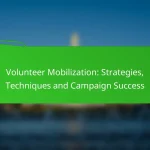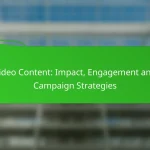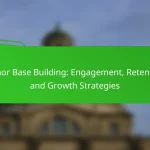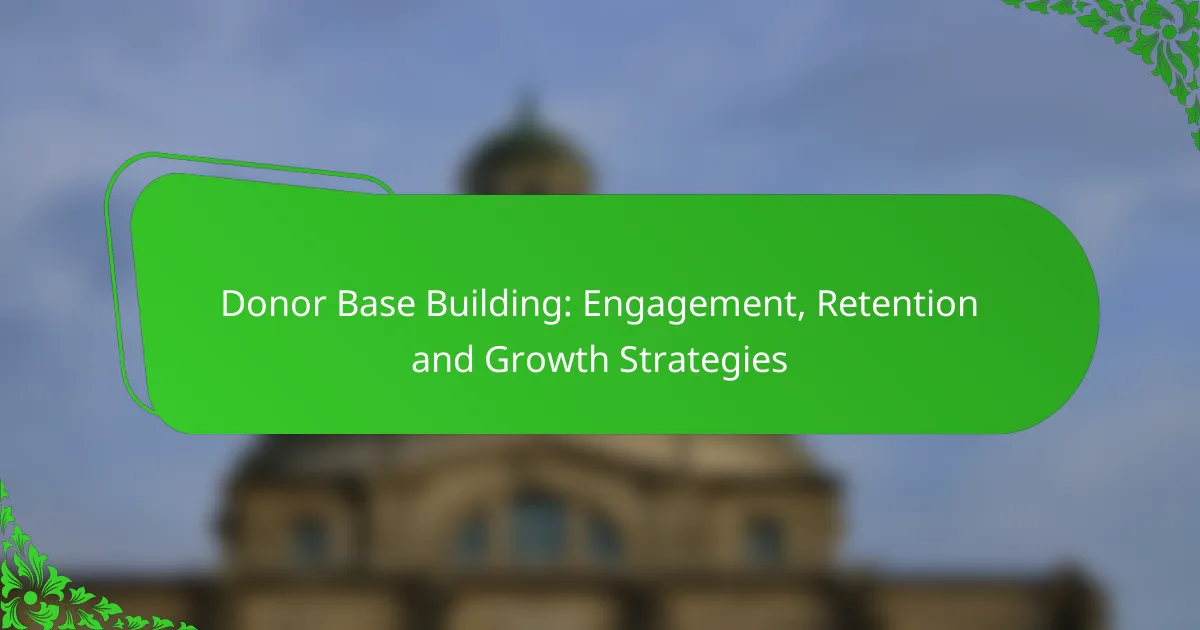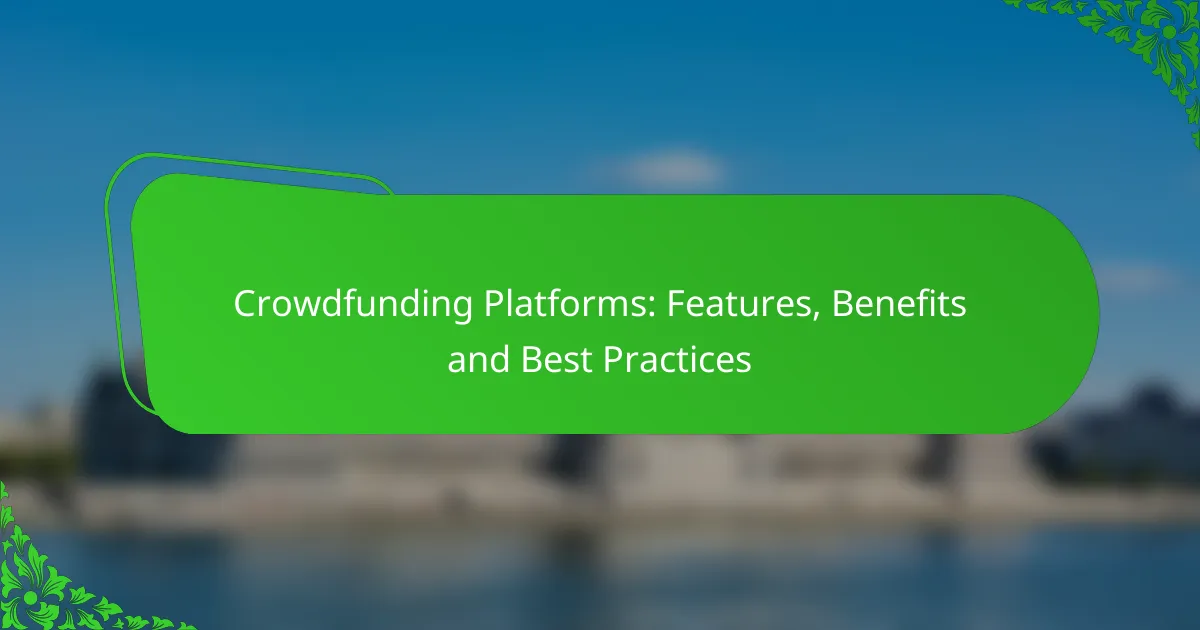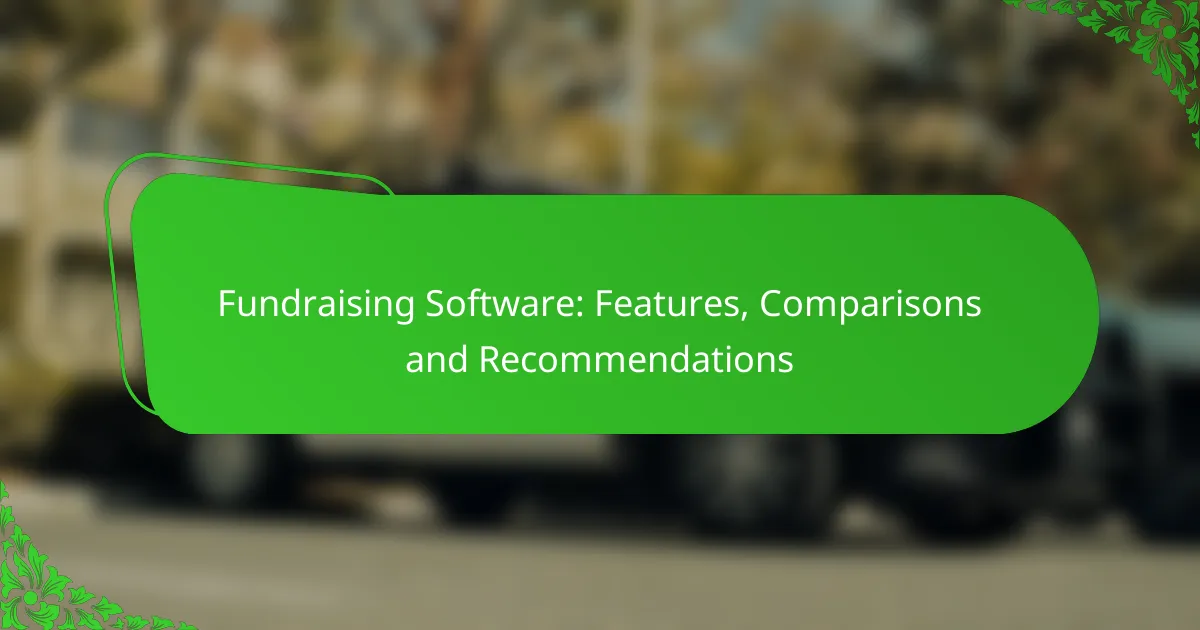Planning a political fundraising event requires careful consideration of objectives, venue selection, budget establishment, and timeline creation to ensure success. Effective promotion is essential, utilizing digital channels and personal networks to enhance outreach and engagement. The execution phase demands meticulous attention to logistics, ticketing, and regulatory compliance to maximize contributions and attendance.

How to plan a political fundraising event in major US cities
Planning a political fundraising event in major US cities involves setting clear objectives, selecting an appropriate venue, establishing a budget, and creating a timeline. Each of these steps is crucial to ensure the event’s success and maximize fundraising potential.
Define event goals and objectives
Clearly defining event goals and objectives is essential for a successful political fundraising event. Consider what you aim to achieve, such as raising a specific amount of money, increasing voter engagement, or building community support.
Set measurable objectives, like raising $50,000 within a month or attracting 200 attendees. These targets will guide your planning process and help evaluate the event’s success afterward.
Select a suitable venue
Choosing the right venue is critical for attracting attendees and creating a welcoming atmosphere. Look for locations that are accessible, have adequate space for your expected guest count, and align with your event’s theme.
Consider venues such as community centers, hotels, or outdoor parks. In major cities, rental costs can vary significantly, so research options to find a balance between affordability and suitability.
Establish a budget
Creating a detailed budget helps manage expenses and ensures you stay within financial limits. Include costs for the venue, catering, permits, marketing, and any entertainment or speakers.
As a guideline, allocate around 30-50% of your expected fundraising total to expenses. This approach allows you to set realistic financial goals and avoid overspending.
Create a timeline
Developing a timeline is vital for organizing tasks and ensuring everything runs smoothly. Start by setting a date for the event and work backward to outline key milestones, such as booking the venue, launching promotions, and finalizing details.
Consider creating a checklist that includes deadlines for each task. Aim to finalize all planning at least a month before the event to allow time for adjustments and last-minute details.

What are effective promotion strategies for political fundraising events?
Effective promotion strategies for political fundraising events focus on maximizing outreach and engagement. Utilizing digital channels, leveraging personal networks, and connecting with local communities can significantly enhance attendance and contributions.
Utilize social media platforms
Social media platforms are essential for promoting political fundraising events. They allow for real-time engagement and can reach a broad audience quickly. Create event pages on platforms like Facebook and share updates on Twitter and Instagram to generate buzz.
Consider using targeted ads to reach specific demographics that align with your campaign’s values. Engaging content, such as videos or live streams, can further attract attention and encourage shares, amplifying your reach.
Leverage email marketing campaigns
Email marketing remains a powerful tool for fundraising event promotion. Craft compelling messages that highlight the event’s purpose, date, and how attendees can contribute. Personalization can increase engagement, so address recipients by name and tailor content to their interests.
Segment your email list to target different groups, such as previous donors or local supporters, with specific messages that resonate with their past interactions. Sending reminders as the event approaches can help boost attendance.
Engage local influencers
Local influencers can significantly enhance the visibility of your fundraising event. Identify individuals within your community who have a strong following and align with your campaign’s mission. Collaborating with them can lend credibility and attract their audience to your event.
Offer influencers incentives, such as exclusive access or recognition at the event, to encourage their participation. Their endorsement can create a ripple effect, encouraging their followers to engage and contribute to your cause.

How to execute a successful political fundraising event?
Executing a successful political fundraising event involves meticulous planning, effective promotion, and seamless execution. Key elements include coordinating logistics, implementing ticketing systems, and ensuring compliance with relevant regulations.
Coordinate logistics and staffing
Effective coordination of logistics and staffing is crucial for a successful fundraising event. Start by selecting a suitable venue that aligns with your budget and expected attendance, ensuring it has the necessary facilities like audio-visual equipment and seating arrangements.
Next, assemble a dedicated team to manage various aspects of the event, including setup, guest services, and post-event activities. Assign clear roles and responsibilities to avoid confusion and ensure smooth operation on the event day.
Implement ticketing and registration systems
Implementing a streamlined ticketing and registration system is essential for managing attendance and maximizing revenue. Consider using online platforms that allow for easy ticket sales, tracking, and payment processing. This can help you reach a broader audience and simplify the registration process.
Be transparent about ticket pricing and any additional fees. Offering early-bird discounts or group rates can encourage higher attendance and increase fundraising potential.
Ensure compliance with fundraising regulations
Compliance with fundraising regulations is vital to avoid legal issues and maintain credibility. Familiarize yourself with local laws regarding campaign contributions, reporting requirements, and permissible fundraising activities. This may vary significantly by state or country.
Consider consulting with a legal expert to ensure all aspects of your event adhere to regulations, including donor limits and disclosure requirements. Keeping accurate records of donations and expenditures will also help you stay compliant.
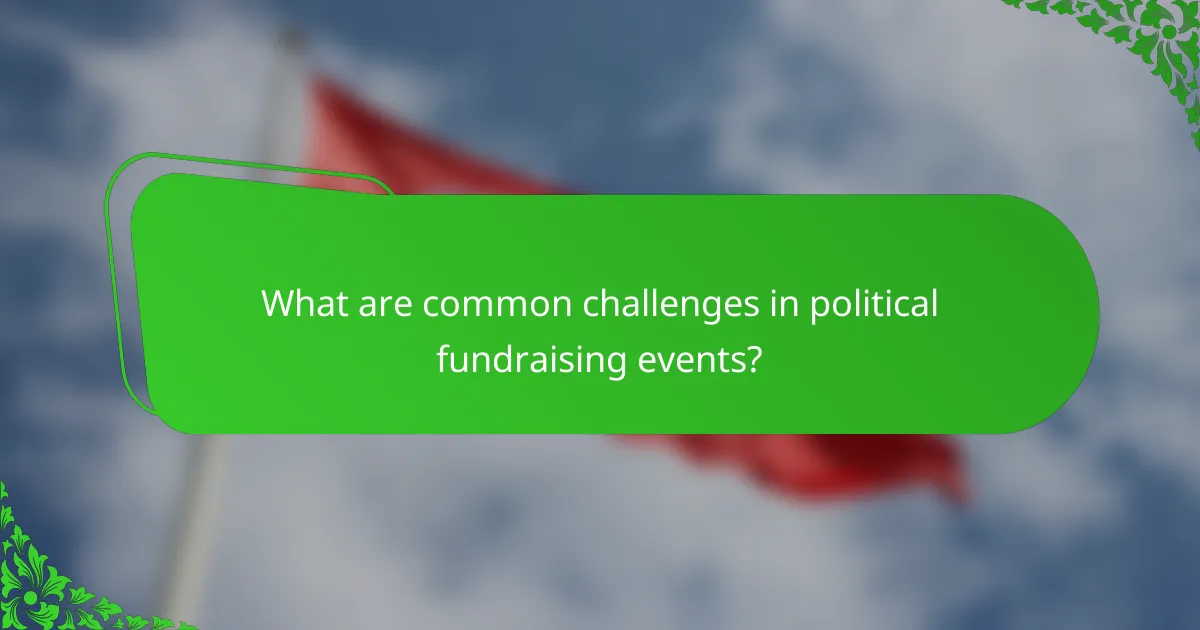
What are common challenges in political fundraising events?
Political fundraising events often face challenges such as managing donor expectations and dealing with last-minute changes. These issues can impact the overall success of the event and the funds raised.
Managing donor expectations
Setting and managing donor expectations is crucial for a successful political fundraising event. Clear communication about the event’s goals, budget, and potential outcomes helps align donor interests with the event’s objectives.
To effectively manage expectations, provide donors with detailed information about how their contributions will be used. For instance, if funds are earmarked for specific campaigns or initiatives, make that clear to avoid misunderstandings.
Regular updates leading up to the event can also help maintain engagement and ensure donors feel valued. This could include sharing milestones or changes in the event’s agenda, which reinforces transparency.
Dealing with last-minute changes
Last-minute changes are a common occurrence in political fundraising events and can arise from various factors such as venue issues or speaker cancellations. Being prepared for these changes is essential to minimize disruption and maintain the event’s flow.
Establish a contingency plan that includes alternative venues, backup speakers, or flexible schedules. This allows for quick adjustments without significant impact on the event’s success.
Communicate any changes promptly to attendees and donors. Use multiple channels, such as email and social media, to ensure that everyone is informed, which helps maintain trust and engagement despite any alterations.
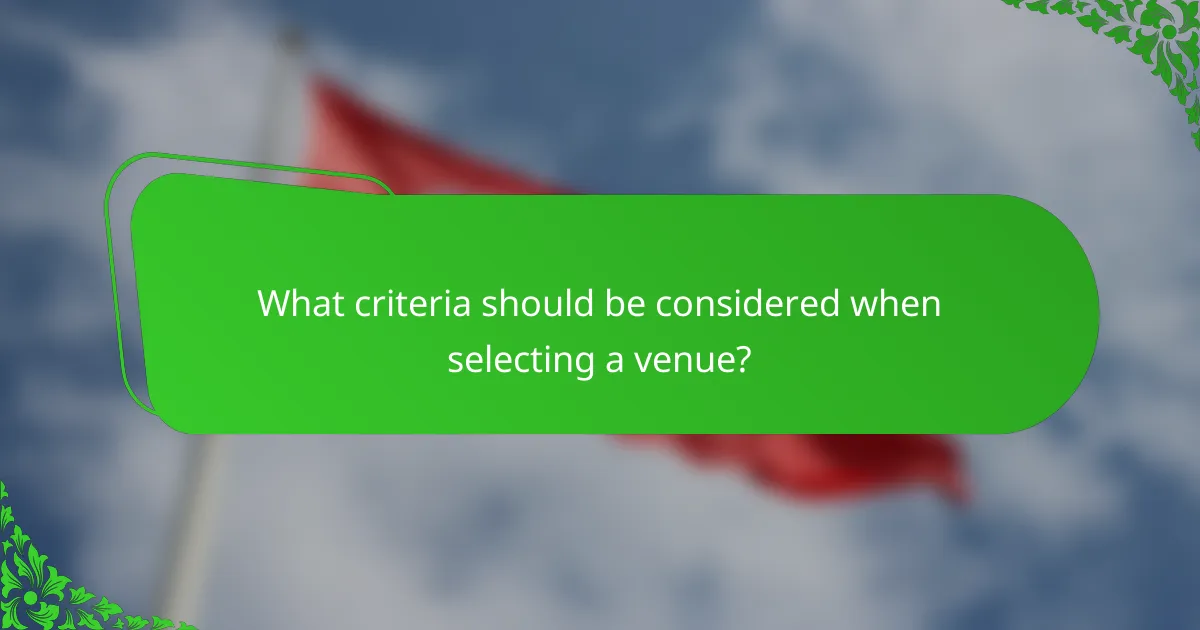
What criteria should be considered when selecting a venue?
When selecting a venue for political fundraising events, consider factors such as accessibility, capacity, and location relevance. These criteria ensure that the event is inclusive, can accommodate attendees comfortably, and is strategically positioned to attract the target audience.
Accessibility for attendees
Accessibility is crucial for ensuring that all potential attendees can participate in the event. This includes physical access for individuals with disabilities, such as ramps, elevators, and designated seating. Additionally, consider transportation options like public transit availability and parking facilities.
Check local regulations regarding accessibility standards to ensure compliance. Providing clear information about accessibility features in promotional materials can enhance attendance and demonstrate inclusivity.
Capacity and layout
Choosing a venue with the appropriate capacity is essential to avoid overcrowding or underutilization. Assess the expected number of attendees and select a space that comfortably accommodates them while allowing for movement and interaction. A venue that holds between 100 to 300 people is often ideal for mid-sized fundraising events.
Consider the layout of the venue as well. An open floor plan can facilitate networking and engagement, while designated areas for speeches or presentations can enhance the event’s structure. Ensure that the layout aligns with the event’s goals and activities.
Location relevance
The location of the venue should resonate with the target audience and reflect the event’s purpose. A venue situated in a politically significant area or near key stakeholders can increase visibility and attendance. Aim for locations that are familiar and convenient for your audience.
Evaluate the surrounding environment as well. Proximity to restaurants, hotels, and other amenities can enhance the overall experience for attendees. Additionally, consider the local political climate and how it may influence attendance and engagement.
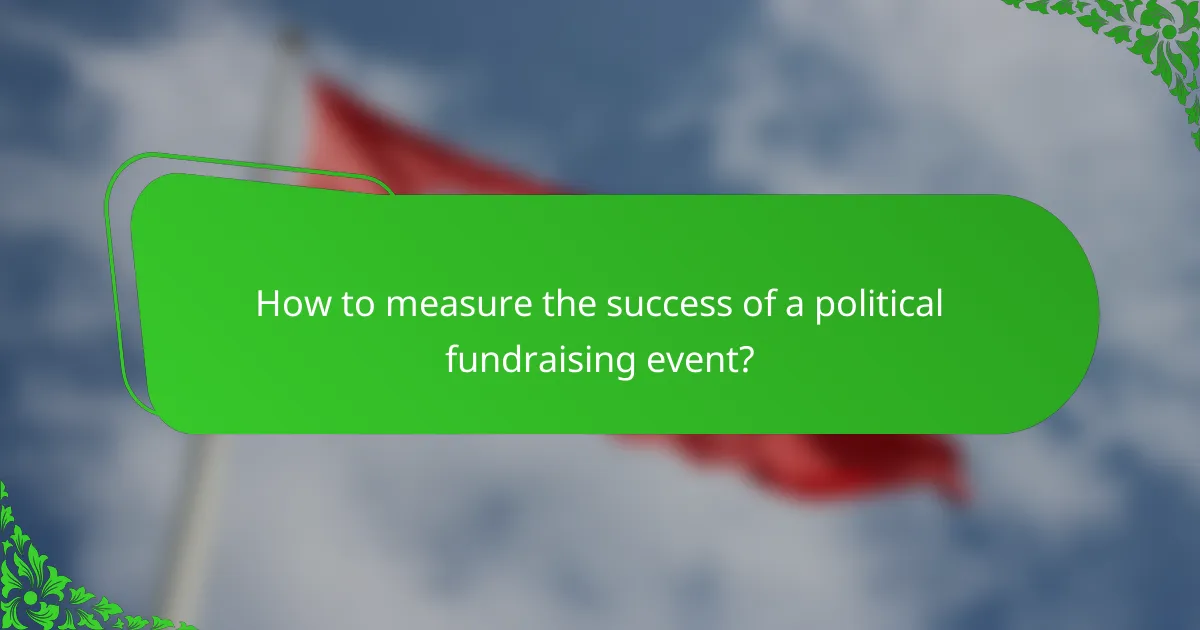
How to measure the success of a political fundraising event?
To measure the success of a political fundraising event, focus on key metrics such as total funds raised, attendee engagement, and overall costs. Evaluating these factors will help determine the effectiveness of your event in achieving its financial and outreach goals.
Analyze fundraising totals
Start by calculating the total amount raised during the event. This figure should include ticket sales, donations, and any additional revenue streams, such as merchandise or sponsorships. Comparing this total against your initial fundraising goals will provide a clear picture of success.
Consider breaking down the fundraising totals by category. For example, you might analyze how much came from ticket sales versus direct donations. This can help identify which aspects of the event were most effective and where improvements might be needed for future events.
Additionally, track the costs associated with the event, including venue rental, catering, and promotional expenses. Subtracting these costs from the total funds raised will give you a net profit figure, which is crucial for understanding the financial viability of the event.
